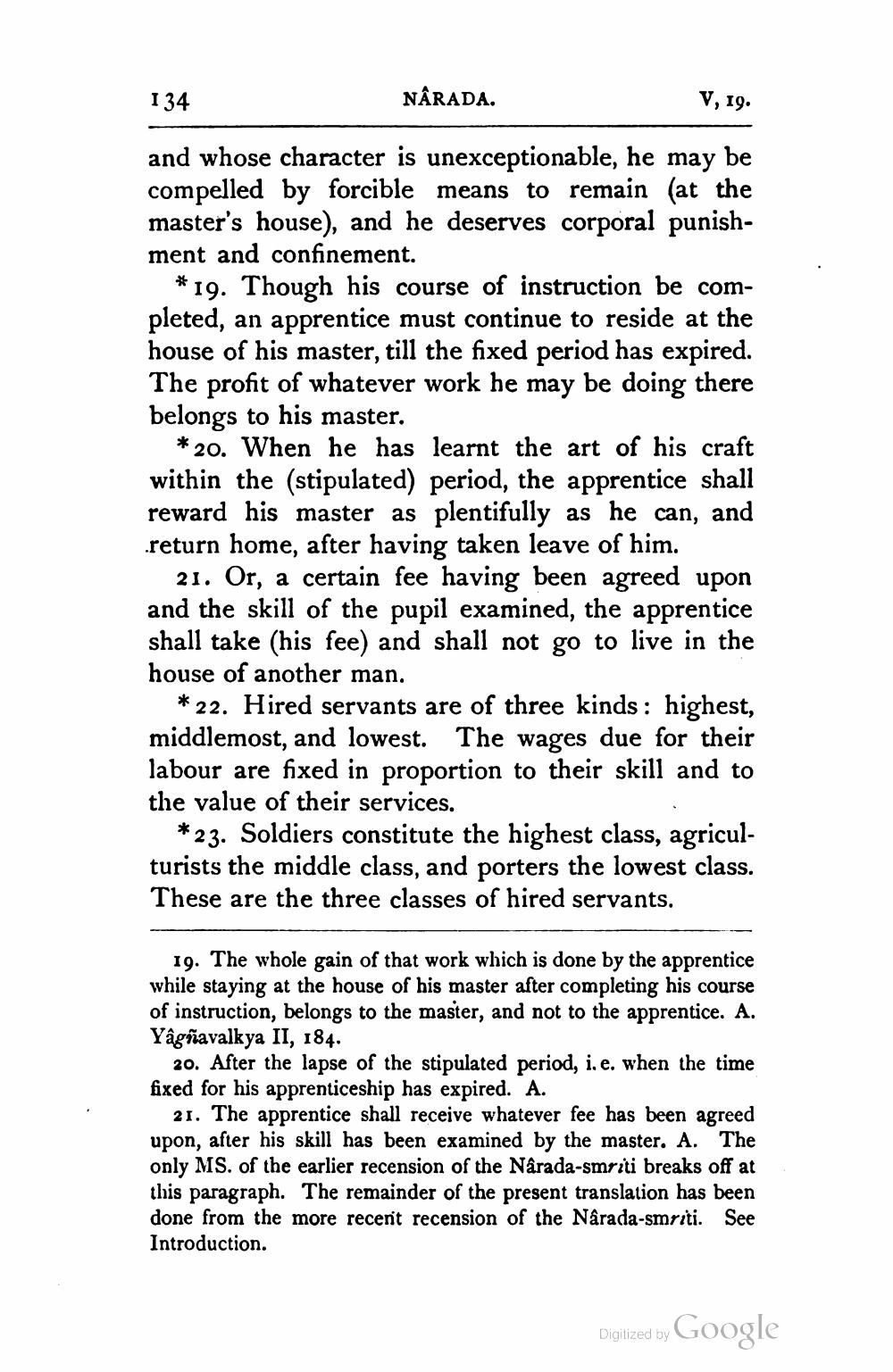________________
134
NÂRADA.
V, 19.
and whose character is unexceptionable, he may be compelled by forcible means to remain (at the master's house), and he deserves corporal punishment and confinement.
*19. Though his course of instruction be completed, an apprentice must continue to reside at the house of his master, till the fixed period has expired. The profit of whatever work he may be doing there belongs to his master.
*20. When he has learnt the art of his craft within the (stipulated) period, the apprentice shall reward his master as plentifully as he can, and return home, after having taken leave of him.
21. Or, a certain fee having been agreed upon and the skill of the pupil examined, the apprentice shall take (his fee) and shall not go to live in the house of another man.
*22. Hired servants are of three kinds : highest, middlemost, and lowest. The wages due for their labour are fixed in proportion to their skill and to the value of their services.
*23. Soldiers constitute the highest class, agriculturists the middle class, and porters the lowest class. These are the three classes of hired servants.
19. The whole gain of that work which is done by the apprentice while staying at the house of his master after completing his course of instruction, belongs to the master, and not to the apprentice. A. Yâgñavalkya II, 184.
20. After the lapse of the stipulated period, i.e. when the time fixed for his apprenticeship has expired. A.
21. The apprentice shall receive whatever fee has been agreed upon, after his skill has been examined by the master. A. The only MS. of the earlier recension of the Nárada-smriti breaks off at this paragraph. The remainder of the present translation has been done from the more recent recension of the Narada-smriti. See Introduction.
Digitized by Google




